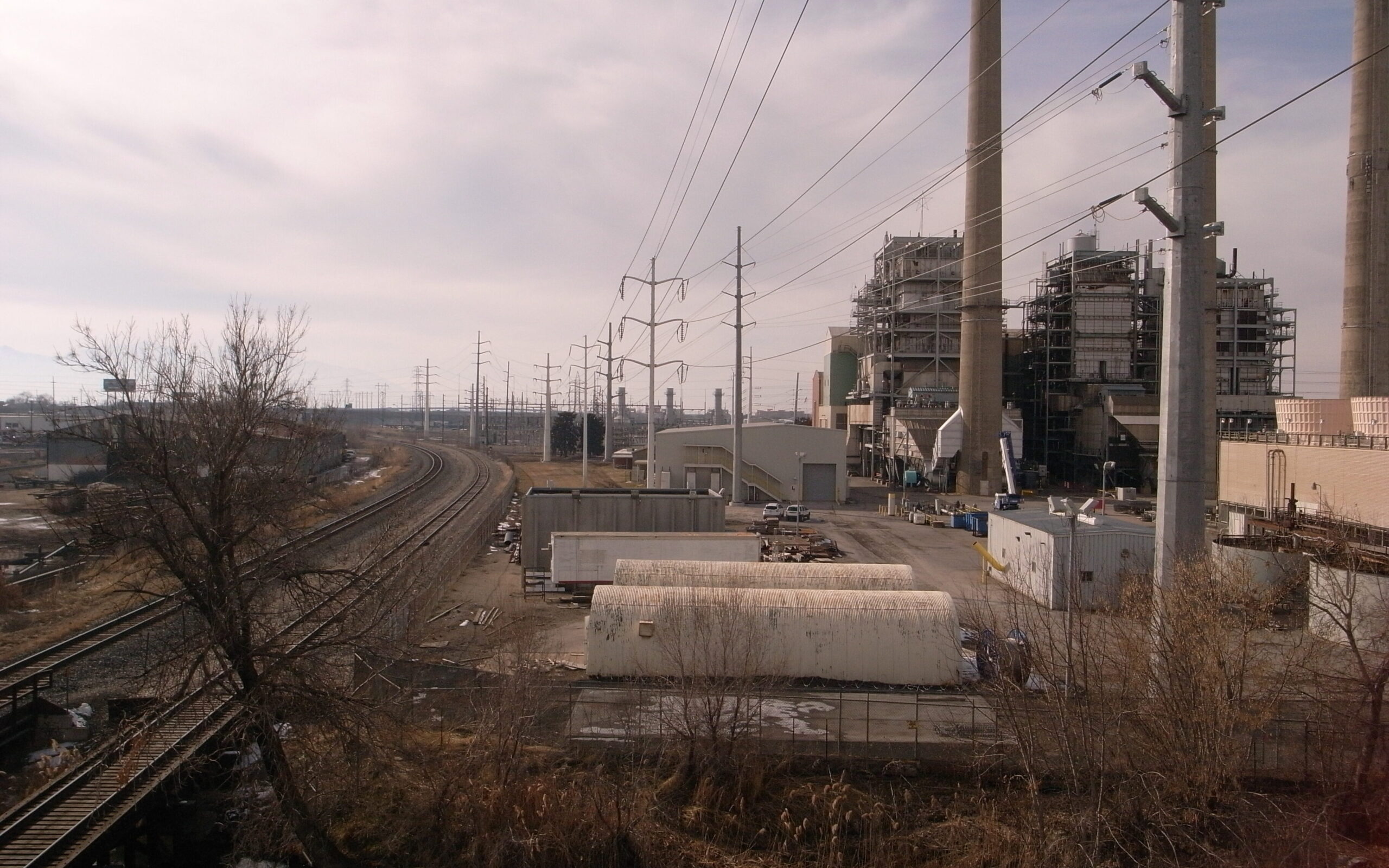
The Great Salt Lake and Colorado River are drying up, and the state government wants to pay farmers not to farm. An inland port threatens to bring tons of new freight traffic through the valley, and the city government is worried it won’t get its fair share of the new tax revenue. The Oquirrh mountains are irreparably scarred by a mining company that is being fought against on across the world but is left to develop here in peace. The west side becomes home to yet another new highway that has in two short years claimed dozens of lives and will shorten thousands more through increased air pollution, and no one bats an eye.
Every year the Salt Lake Valley cycles from winter smog to summer smoke, the result of compounding ecological crises, each more damaging than the last. And every year every level of government decries the worsening situation only to continue supporting the very causes of this growing sickness. There is a widespread misunderstanding about the nature of these crises, many believe that these are failures of policy, or perhaps of illegality, and while it is certainly true that the government and its policies are a great benefit to the polluters, extractors, and developers, and it is also true that these corporations are repeatedly in violation of myriad laws, the true culprit behind these crises is the existing mode of economic production.
Extraction and pollution bookend the production process, everything is made from material resources which must be extracted and, insofar as energy input is required in production, everything has some amount of pollution associated to it. But while the Earth can bear some extraction and bring some pollution back into its ecological processes, when relentless economic growth becomes the driving logic behind production, a rift forms between human processes and ecological ones. But this is not inherent to human production, endless growth and pursuit of profit only become the ruling logic of production under the capitalist mode of production. Since under capitalism, production is done for the sake of the property-owner’s private accumulation of profits, thought is not given to the human and ecological harm of production; instead “the private economy results in each individual trying to make the most profit possible without even thinking for a single moment of the general interest, that of humanity.”
This is how we find ourselves in the current moment, surrounded on all sides by a sickness that, because we do not own the causes of it, we can do nothing to stop. This is the framework which we must use to understand our place in these crises as well; while certainly as consumers each of us is complicit in the mountains of waste in the landfills, the tons of pollutants in the air, and the vast deserts left behind by extractive industry, insofar as these are the consequences of production, we must ask ourselves, how much control do we really have in the production of the world we live in? Do we ever choose how many cars to make, or how many days of the week one must drive to work? Do we really “demand” constantly the production of new gadgets which rely on further extraction and pollution? The truth is that as either producers or consumers, the vast majority of individuals do not control the conditions of their lives, nor the consequences of it. It is at the feet of the capitalist class that the blame for these crises must be laid, because in the ways that the economy is now organized (that is as a capitalist economy), they are the only ones with any real power.
What then is the path out of impending ecological doom? It is not up to the author of this blog to prescribe action, but given what has been outlined here, we may be able to outline some changes to production that would be required. Production as a private process directed by the profit motive must cease, and in its place production as a common good must be established. The necessary aspects of this sort of production can only be discovered through experimentation but will at least require the appropriation of polluting enterprises by the workers who make them run (this map showing large point-source emitters shows some local enterprises which could be affected by this sort of initiative), with operations resuming according to the needs of society and in concert with all those affected by its operation, namely nearby residents who bear the brunt of any pollution caused by the production process. This last point is key and is necessary for the appropriation of industry by workers to truly correct for environmental injustices, industry must be run in harmony with those who are impacted by its operation and not furthering the same harm we are experiencing now under the rule of the capitalists.
Production, freed from the yoke of capital and its profit-motive, and under the control of those directly involved in its process, will also be free to reorganize itself toward the realization of increased quality of life for the totality of society while still recognizing its place within ecological systems. “A rational social order will have to use the available natural resources in such a way that what is consumed is replaced at the same time, so that society does not impoverish itself and can become wealthier. A closed economy which consumes part of its seed corn impoverishes itself more and more and must inevitably fail. But that is the way capitalism acts. This is an economy which does not think of the future but lives only in the immediate present. In today’s economic order, nature does not serve humanity, but capital. It is not the clothing, food or cultural needs of humanity that govern production, but capital’s appetite for profit.”
This reorganization of production should not be limited to polluting industries, however, it also stands as the best possible response to our growing water crises. From the moment water touches the ground it becomes someone’s property, whether that someone is a private company or a “public” government is almost beside the point. But public ownership should not be confused for common ownership, and the interests of government are not really representative of the society it claims dominion over. Public ownership, whether it is ownership by a federal, state, or even local government body, means “the politicians, officials, leaders, secretaries, managers, are the direct masters of the production apparatus; they direct and regulate the process of production; they command the workers.” Under such a form of organization, crisis may be stalled, but exploitation of the working class remains and communities will be just as powerless to address their most pressing issues. Instead, common ownership would place power in the hands “of all that partake in really productive work, including employees, farmers, scientists,” uplifting the working class to be “master of the production apparatus, managing, directing, and regulating the process of production which is, indeed, their common work.”
Common ownership nullifies the distractions of private ownership and, as a result, the compulsion to subsume and exploit both natural resources and human labor in the pursuit of profit. The simple truth is that the existing ecological crises are the products of capitalism. Where capitalism produces crisis, a system of common ownership holds the promise of conscious and intentional relations with the ecologies that surround and exist within our the built-environment. Freed from the toxic imperatives of capital, the usage of water and all other natural resources can be planned according to needs, both human and non-human. Capitalist society has even begun to collect the necessary information for such an approach to societies pressing issues, the conscious planning of human activity for the well-being of all living things. Despite its commitment to markets and their structured structureless-ness, both capitalists and the governments that serve them, study and measure the economy they refuse to understand, providing us with information on agricultural production, manufacturing facilities, warehouse space, and much more. Between these resources and the knowledge of production held in the minds of the working class, society could be remade to address the most pressing crises of today, from mass alienation, exploitation, and violence to climate crises. The path to a better future lies in the abolition of capital and its reconstruction towards a common world.
For more readings on Ecology and Capitalism check out the recommended readings on the About Page.
